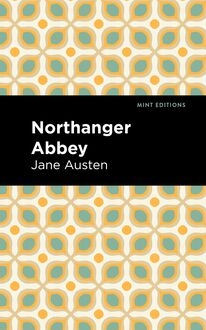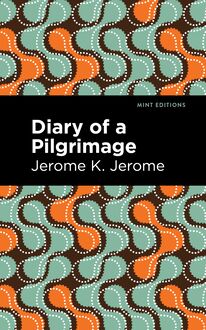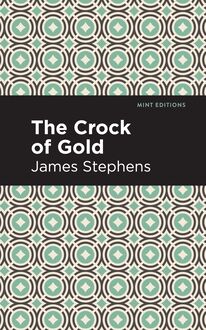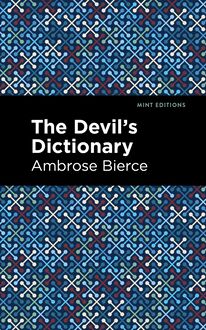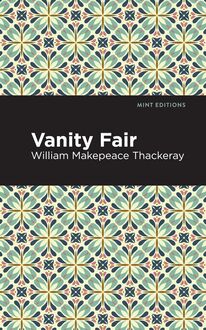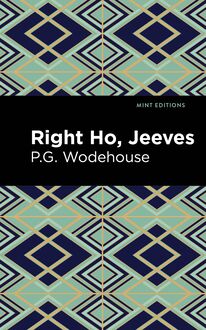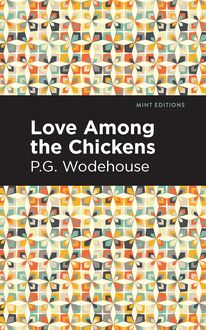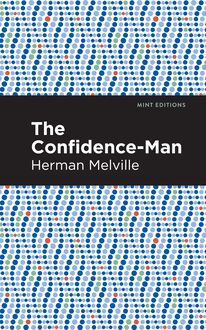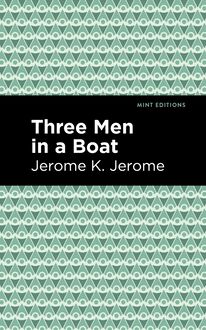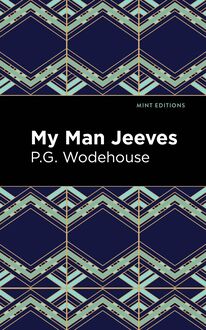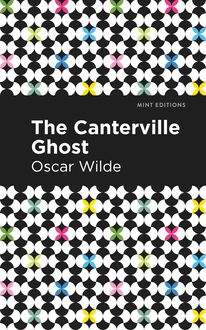-
 Univers
Univers
-
 Ebooks
Ebooks
-
 Livres audio
Livres audio
-
 Presse
Presse
-
 Podcasts
Podcasts
-
 BD
BD
-
 Documents
Documents
-
- Cours
- Révisions
- Ressources pédagogiques
- Sciences de l’éducation
- Manuels scolaires
- Langues
- Travaux de classe
- Annales de BEP
- Etudes supérieures
- Maternelle et primaire
- Fiches de lecture
- Orientation scolaire
- Méthodologie
- Corrigés de devoir
- Annales d’examens et concours
- Annales du bac
- Annales du brevet
- Rapports de stage
La lecture à portée de main
Vous pourrez modifier la taille du texte de cet ouvrage
Découvre YouScribe en t'inscrivant gratuitement
Je m'inscrisDécouvre YouScribe en t'inscrivant gratuitement
Je m'inscrisEn savoir plus
Vous pourrez modifier la taille du texte de cet ouvrage
En savoir plus

Description
When Fairy Blackstick created a magical rose and ring, she did not anticipate their existence to be so troublesome. With the power to warp perception, the rose and the ring each make their bearer seem beautiful and irresistibly charming. However, as they are passed down, the magic of the items had been forgotten, leaving their new owners clueless of this ability. The ring resides in the Paflagonia kingdom. Giglio, the King’s nephew, is the rightful heir to the throne, but the opportunity was stolen from him as a baby. However, he owns the ring, which had been passed down from his mother. Since Giglio does not wear the ring, he is often overlooked in the family, overshadowed by Princess Angelica. The rose resides in the Crim Tartary kingdom. Separated for years, the two magical objects reunite when Prince Bulbo of the Crim Tartary kingdom visits Paflagonia, carrying his rose with him. When Angelica immediately falls in love with the prince, this angers Giglio, who had held feelings for Angelica for a long time. After a passionate confrontation between Angelica and Giglio, the enchanted ring is thrown out into the garden, free for anyone to find. As the ring finds a new owner, complicated love triangles emerge, inciting fights, threats, and social turmoil.
Written like a fairytale, The Rose and the Ring by William Makepeace Thackery features magic and dueling kingdoms, capturing the imagination of its audience. Meant to be a satirical work of romantic comedy, The Rose and the Ring criticizes the attitudes of monarchs and high society, specifically challenging their ideals of beauty and marriage. With the combination of clever satire, imaginative prose, and an exciting narrative, this novel is both entertaining and thought-provoking. Originally published in 1855, The Rose and the Ring is a whimsical tale supporting a meaningful message that still remains relevant to modern day society.
This edition of The Rose and the Ring by William Makepeace Thackery features a striking new cover design and is printed in a font that is both modern and readable. With these accommodations, The Rose and the Ring caters to a contemporary audience while preserving the original hilarity of Thackery’s work.
Sujets
Informations
| Publié par | Mint Editions |
| Date de parution | 09 mars 2021 |
| Nombre de lectures | 0 |
| EAN13 | 9781513278124 |
| Langue | English |
| Poids de l'ouvrage | 1 Mo |
Informations légales : prix de location à la page 0,0350€. Cette information est donnée uniquement à titre indicatif conformément à la législation en vigueur.
Extrait
The Rose and The Ring
William Makepeace Thackeray
The Rose and The Ring was first published in 1854.
This edition published by Mint Editions 2021.
ISBN 9781513277714 | E-ISBN 9781513278124
Published by Mint Editions®
minteditionbooks.com
Publishing Director: Jennifer Newens
Design & Production: Rachel Lopez Metzger
Project Manager: Micaela Clark
Typesetting: Westchester Publishing Services
C ONTENTS
I. S HOWS HOW THE R OYAL F AMILY S ATE DOWN TO B REAKFAST
II. H OW K ING V ALOROSO GOT THE C ROWN , AND P RINCE G IGLIO WENT W ITHOUT
III. T ELLS WHO THE F AIRY B LACKSTICK WAS , AND WHO WERE EVER SO MANY G RAND P ERSONAGES B ESIDES
IV. H OW B LACKSTICK WAS NOT ASKED TO THE P RINCESS A NGELICA ’ S C HRISTENING
V. H OW P RINCESS A NGELICA TOOK A L ITTLE M AID
VI. H OW P RINCE G IGLIO B EHAVED H IMSELF
VII. H OW G IGLIO AND A NGELICA HAD A Q UARREL
VIII. H OW G RUFFANUFF P ICKED THE F AIRY R ING U P , AND P RINCE B ULBO CAME TO C OURT
IX. H OW B ETSINDA GOT THE W ARMING P AN
X. H OW K ING V ALOROSO WAS IN A D READFUL P ASSION
XI. W HAT G RUFFANUFF DID TO G IGLIO AND B ETSINDA
XII. H OW B ETSINDA F LED , AND W HAT B ECAME OF HER
XIII. H OW Q UEEN R OSALBA CAME TO THE C ASTLE OF THE B OLD C OUNT H OGGINARMO
XIV. W HAT B ECAME OF G IGLIO
XV. W E R ETURN TO R OSALBA
XVI. H OW H EDZOFF R ODE BACK AGAIN TO K ING G IGLIO
XVII.H OW A T REMENDOUS B ATTLE T OOK P LACE , AND WHO WON IT
XVIII. H OW THEY ALL J OURNEYED BACK TO THE C APITAL
XIX. A ND NOW WE COME TO THE LAST SCENE IN THE P ANTOMIME
I
S HOWS HOW THE R OYAL F AMILY S ATE DOWN TO B REAKFAST
T his is Valoroso XXIV, King of Paflagonia, seated with his Queen and only child at their royal breakfast-table, and receiving the letter which announces to His Majesty a proposed visit from Prince Bulbo, heir of Padella, reigning King of Crim Tartary. Remark the delight upon the monarch’s royal features. He is so absorbed in the perusal of the King of Crim Tartary’s letter, that he allows his eggs to get cold, and leaves his august muffins untasted.
‘What! that wicked, brave, delightful Prince Bulbo!’ cries Princess Angelica; ‘so handsome, so accomplished, so witty—the conqueror of Rimbombamento, where he slew ten thousand giants!’
‘Who told you of him, my dear?’ asks His Majesty.
‘A little bird,’ says Angelica.
‘Poor Giglio!’ says mamma, pouring out the tea.
‘Bother Giglio!’ cries Angelica, tossing up her head, which rustled with a thousand curl-papers.
‘I wish,’ growls the King—‘I wish Giglio was…’
‘Was better? Yes, dear, he is better,’ says the Queen. ‘Angelica’s little maid, Betsinda, told me so when she came to my room this morning with my early tea.’
‘You are always drinking tea,’ said the monarch, with a scowl.
‘It is better than drinking port or brandy and water;’ replies Her Majesty.
‘Well, well, my dear, I only said you were fond of drinking tea,’ said the King of Paflagonia, with an effort as if to command his temper. ‘Angelica! I hope you have plenty of new dresses; your milliners’ bills are long enough. My dear Queen, you must see and have some parties. I prefer dinners, but of course you will be for balls. Your everlasting blue velvet quite tires me: and, my love, I should like you to have a new necklace. Order one. Not more than a hundred or a hundred and fifty thousand pounds.’
‘And Giglio, dear?’ says the Queen.
‘ G IGLIO M AY GO TO THE —’
‘Oh, sir,’ screams Her Majesty. ‘Your own nephew! our late King’s only son.’
‘Giglio may go to the tailor’s, and order the bills to be sent in to Glumboso to pay. Confound him! I mean bless his dear heart. He need want for nothing; give him a couple of guineas for pocket-money, my dear; and you may as well order yourself bracelets while you are about the necklace, Mrs. V.’
Her Majesty, or M RS . V., as the monarch facetiously called her (for even royalty will have its sport, and this august family were very much attached), embraced her husband, and, twining her arm round her daughter’s waist, they quitted the breakfast-room in order to make all things ready for the princely stranger.
When they were gone, the smile that had lighted up the eyes of the H USBAND and F ATHER fled—the pride of the K ING fled—the M AN was alone. Had I the pen of a G. P. R. James, I would describe Valoroso’s torments in the choicest language; in which I would also depict his flashing eye, his distended nostril—his dressing-gown, pocket-handkerchief, and boots. But I need not say I have N OT the pen of that novelist; suffice it to say, Valoroso was alone.
He rushed to the cupboard, seizing from the table one of the many egg-cups with which his princely board was served for the matin meal, drew out a bottle of right Nantz or Cognac, filled and emptied the cup several times, and laid it down with a hoarse ‘Ha, ha, ha! now Valoroso is a man again!’
‘But oh!’ he went on (still sipping, I am sorry to say), ’ere I was a king, I needed not this intoxicating draught; once I detested the hot brandy wine, and quaffed no other fount but nature’s rill. It dashes not more quickly o’er the rocks than I did, as, with blunderbuss in hand, I brushed away the early morning dew, and shot the partridge, snipe, or antlered deer! Ah! well may England’s dramatist remark, “Uneasy lies the head that wears a crown!” Why did I steal my nephew’s, my young Giglio’s—? Steal! said I? no, no, no, not steal, not steal. Let me withdraw that odious expression. I took, and on my manly head I set, the royal crown of Paflagonia; I took, and with my royal arm I wield, the sceptral rod of Paflagonia; I took, and in my outstretched hand I hold, the royal orb of Paflagonia! Could a poor boy, a snivelling, drivelling boy—was in his nurse’s arms but yesterday, and cried for sugarplums and puled for pap—bear up the awful weight of crown, orb, sceptre? gird on the sword my royal fathers wore, and meet in fight the tough Crimean foe?’
And then the monarch went on to argue in his own mind (though we need not say that blank verse is not argument) that what he had got it was his duty to keep, and that, if at one time he had entertained ideas of a certain restitution, which shall be nameless, the prospect by a C ERTAIN M ARRIAGE of uniting two crowns and two nations which had been engaged in bloody and expensive wars, as the Paflagonians and the Crimeans had been, put the idea of Giglio’s restoration to the throne out of the question: nay, were his own brother, King Savio, alive, he would certainly will the crown from his own son in order to bring about such a desirable union.
Thus easily do we deceive ourselves! Thus do we fancy what we wish is right! The King took courage, read the papers, finished his muffins and eggs, and rang the bell for his Prime Minister. The Queen, after thinking whether she should go up and see Giglio, who had been sick, thought ‘Not now. Business first; pleasure afterwards. I will go and see dear Giglio this afternoon; and now I will drive to the jeweller’s, to look for the necklace and bracelets.’ The Princess went up into her own room, and made Betsinda, her maid, bring out all her dresses; and as for Giglio, they forgot him as much as I forget what I had for dinner last Tuesday twelve-month.
II
H OW K ING V ALOROSO GOT THE C ROWN , AND P RINCE G IGLIO WENT W ITHOUT
P aflagonia, ten or twenty thousand years ago, appears to have been one of those kingdoms where the laws of succession were not settled; for when King Savio died, leaving his brother Regent of the kingdom, and guardian of Savio’s orphan infant, this unfaithful regent took no sort of regard of the late monarch’s will; had himself proclaimed sovereign of Paflagonia under the title of King Valoroso XXIV, had a most splendid coronation, and ordered all the nobles of the kingdom to pay him homage. So long as Valoroso gave them plenty of balls at Court, plenty of money and lucrative places, the Paflagonian nobility did not care who was king; and as for the people, in those early times, they were equally indifferent. The Prince Giglio, by reason of his tender age at his royal father’s death, did not feel the loss of his crown and empire. As long as he had plenty of toys and sweetmeats, a holiday five times a week and a horse and gun to go out shooting when he grew a little older, and, above all, the company of his darling cousin, the King’s only child, poor Giglio was perfectly contented; nor did he envy his uncle the royal robes and sceptre, the great hot uncomfortable throne of state, and the enormous cumbersome crown in which that monarch appeared from morning till night. King Valoroso’s portrait has been left to us; and I think you will agree with me that he must have been sometimes R ATHER T IRED of his velvet, and his diamonds, and his ermine, and his grandeur. I shouldn’t like to sit in that stifling robe with such a thing as that on my head.
No doubt, the Queen must have been lovely in her youth; for though she grew rather stout in after life, yet her features, as shown in her portrait, are certainly P LEASING . If she was fond of flattery, scandal, cards, and fine clothes, let us deal gently with her infirmities, which, after all, may be no greater than our own. She was kind to her nephew; and if she had any scruples of conscience about her husband’s taking the young Prince’s crown, consoled herself by thinking that the King, though a usurper, was a most respectable man, and that at his death Prince Giglio would be restored to his throne, and share it with his cousin, whom he loved so fondly.
The Prime Minister was Glumboso, an old statesman, who most cheerfully swore fidelity to King Valoroso, and in whose hands the monarch left all the affairs of his kingdom. All Valoroso wanted was plenty of money, plenty of hunting, plenty of flattery, and as little trouble as possible. As long as he had his sport, this monarch cared little how his people paid for it: he engaged in some wars, and of course the Paflagoni
-
 Univers
Univers
-
 Ebooks
Ebooks
-
 Livres audio
Livres audio
-
 Presse
Presse
-
 Podcasts
Podcasts
-
 BD
BD
-
 Documents
Documents
-
Jeunesse
-
Littérature
-
Ressources professionnelles
-
Santé et bien-être
-
Savoirs
-
Education
-
Loisirs et hobbies
-
Art, musique et cinéma
-
Actualité et débat de société
-
Jeunesse
-
Littérature
-
Ressources professionnelles
-
Santé et bien-être
-
Savoirs
-
Education
-
Loisirs et hobbies
-
Art, musique et cinéma
-
Actualité et débat de société
-
Actualités
-
Lifestyle
-
Presse jeunesse
-
Presse professionnelle
-
Pratique
-
Presse sportive
-
Presse internationale
-
Culture & Médias
-
Action et Aventures
-
Science-fiction et Fantasy
-
Société
-
Jeunesse
-
Littérature
-
Ressources professionnelles
-
Santé et bien-être
-
Savoirs
-
Education
-
Loisirs et hobbies
-
Art, musique et cinéma
-
Actualité et débat de société
- Cours
- Révisions
- Ressources pédagogiques
- Sciences de l’éducation
- Manuels scolaires
- Langues
- Travaux de classe
- Annales de BEP
- Etudes supérieures
- Maternelle et primaire
- Fiches de lecture
- Orientation scolaire
- Méthodologie
- Corrigés de devoir
- Annales d’examens et concours
- Annales du bac
- Annales du brevet
- Rapports de stage

